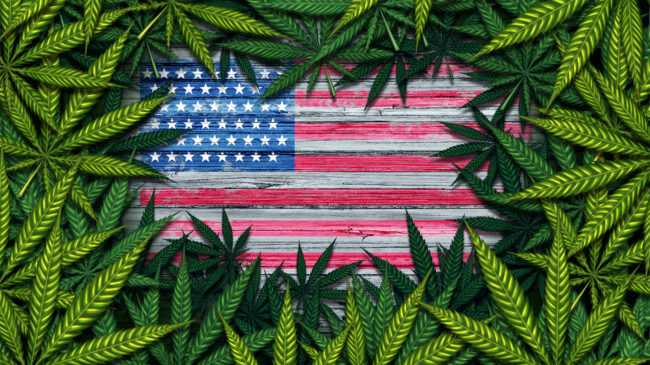Congress is considering adding a rider to the next COVID-19 stimulus that could actually improve the fiscal position of the federal government. After Senate Republicans unveiled their latest stimulus bill, which didn’t include the House’s marijuana banking reform, Speaker of the House Nancy Pelosi (D-CA) defended its inclusion on the grounds of medical benefits amid a pandemic. However, another, and perhaps the best argument for Republicans to make for the banking provision, is probably its effect on government budgets.
According to the Congressional Budget Office (CBO), the SAFE Banking Act would save the federal government approximately $3 million in direct spending over five years, mostly from its effect on federal deposit insurance. With Congress and President Donald Trump having already issued a massive $3.6 trillion in coronavirus stimulus spending, and over $1 trillion in additional spending in the Senate GOP’s proposed Health, Economic Assistance, Liability Protection and Schools Act (HEALS Act), some have derided the potential marijuana banking act revenues as insignificant in the grand scheme of spending.
In sheer dollars, that’s true. However, the CBO analysis fails to consider potential recuperated tax revenue from better compliance, and other federal agencies suggest the CBO’s projections related to marijuana banking reform may be majorly underestimating its potential.
The Treasury Inspector General for Tax Administration recently released a report estimating that there were $48.5 million in unassessed taxes in the legal and regulated marijuana industry for fiscal year 2016. Incentives for tax compliance are low in an industry that largely has no access to banking services—due to federal law—and detection of noncompliance is difficult.
Since that estimate reflects 2016 data, it is important to note that four additional states have since permitted recreational marijuana sales while eight additional states have permitted medical sales. This has increased the size of the legal marijuana industry 123% — from $6.7 billion to over $15 billion in 2019. Thus, it would be reasonable to say the federal government could have missed out on more than $100 million in tax revenue in 2019 due to its reluctance to address issues like legal marijuana banking.
And none of these revenue estimates consider the effects on state and local coffers. In the city of Sacramento, for example, regulators found large discrepancies between the receipts marijuana companies report on their financial statements compared to their receipts reported to the city. The Wharton School at the University of Pennsylvania estimates that Sacramento alone amasses $9 million per year in underpaid taxes due to poor recordkeeping and inaccurate financial statements, which amounts to nearly double the revenue collected by the city through fees and taxes on annual reported cannabis sales.
Issues of underreported marijuana income are endemic across all municipalities and states that have regulated cannabis. This should come as no surprise since cash-based businesses tend to underreport their incomes by 50% in general, which might be even larger in the marijuana industry as suppliers transition from illegal to regulated markets. Additionally, employees of cash-based businesses tend to report less than 20% of their incomes to the Internal Revenue Service (IRS). The best way to address these issues would be to allow marijuana businesses access to banking services, which provide much better records for accounting purposes.
The country is in a recession and experienced an unprecedented 32.9% drop in gross domestic product (GDP) for the second quarter of 2020—due largely to the coronavirus pandemic and the economic lockdowns many state and local governments implemented. While seeking to grapple with the pandemic, recession—and eventually needing to confront the nation’s unsustainable spending, both conservative and liberal policymakers in Congress should consider provisions, like marijuana banking law reforms, that could help the economy, state and local governments, small businesses, and be a net positive to the federal budget.
In states that have legalized cannabis, marijuana companies are attempting to operate legal, regulated businesses despite open hostility from the federal government. Congress should, at minimum, consider legislation that maximizes revenue it collects from the legal cannabis industry while it addresses the discrepancies between federal and state laws.

